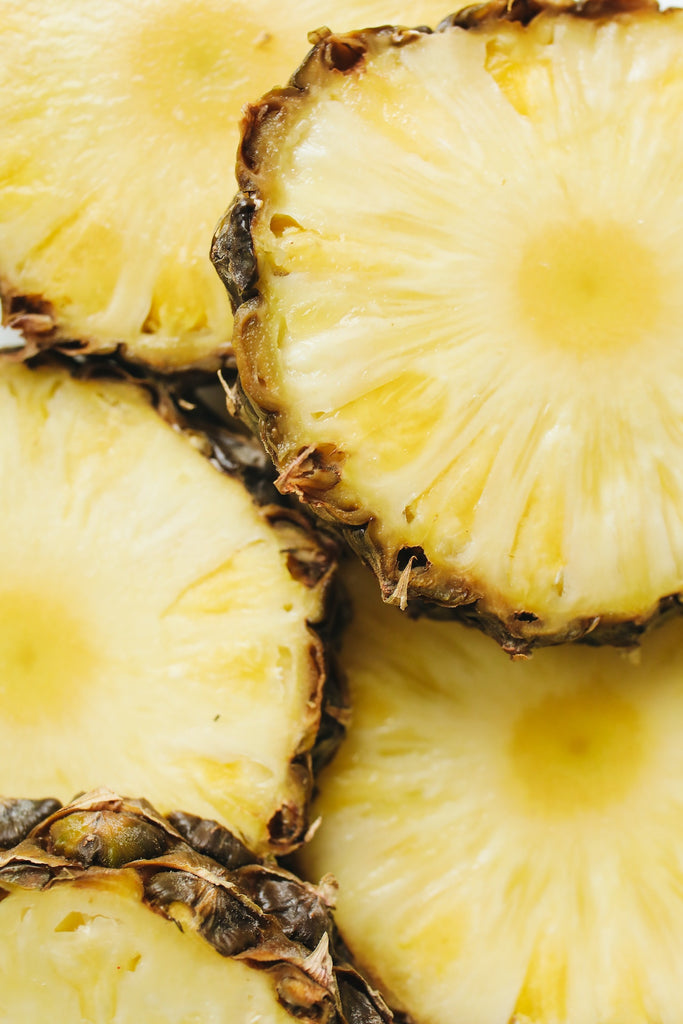
Pineapple Power: Unlocking the Benefits for Horses
When it comes to feeding horses, the first thing that comes to mind is hay and grains. However, horses are known to have a diverse palate and enjoy trying new things. One fruit that has been gaining popularity as a horse treat is the pineapple. Not only is pineapple tasty and sweet, but it is also packed with nutrients that can benefit horses in a variety of ways.
Pineapple is a tropical fruit that is rich in vitamins, minerals, and enzymes that can help improve a horse's overall health. These nutrients include vitamin C, potassium, and manganese, which are important for immune function, muscle and nerve function, and bone health. Additionally, pineapple contains an enzyme called bromelain, which has anti-inflammatory properties. However, introducing new foods to a horse's diet should be done with caution.
In this article, we will explore the health benefits of pineapple for horses, how to safely prepare and feed it, any potential hazards associated with pineapple, and research studies related to the topic. Ultimately, we hope to provide a comprehensive guide to how pineapple can be used to benefit horses and help them lead healthier lives.
Can Horses Eat Pineapple?
Yes, horses can eat pineapple in moderation. Pineapples are high in sugar and fibre, making them a good source of dietary energy for horses. They are also rich in antioxidants and other beneficial nutrients. However, it is important to note that too much pineapple can be bad for a horse's digestive health, so it is important to only feed them in small quantities at a time.

Pineapple
Pineapple is a tropical fruit native to South America but is now widely grown in many tropical and subtropical regions around the world. It is a spiky, cylindrical fruit with a tough outer skin ranging from green to yellow. The fruit inside is yellow or white, juicy, sweet, and distinctively tropical flavour.
Pineapple is not only delicious, but it is also a good source of many essential vitamins and minerals. It is particularly high in vitamin C, which is important for immune function and skin health, and potassium, which is important for muscle and nerve function. Pineapple also contains manganese, which is important for bone health and the metabolism of carbohydrates and protein. Additionally, pineapple has been shown to have anti-inflammatory properties, which can help reduce inflammation in the body.
How to Feed Pineapple to Horses
Types of pineapple best for horses
The best types of pineapple for horses are those that are organic and ripe. Ripe pineapples are sweeter and thus more palatable for horses, making them more likely to eat them. Organic pineapple is preferable as it is free from any potentially harmful chemicals that may be present in non-organic fruits. Additionally, it is important to consider the size of the pineapple when selecting one for your horse.
Preparing pineapple for horses
Preparing pineapple for horses is fairly simple. The first step is to rinse the fruit thoroughly with cold water to remove any dirt or debris. The pineapple should then be peeled and cut into smaller pieces that are easier for the horse to eat. It is important to remove any hard parts from the pineapple, including the skin, core, and eyes. The chunks of pineapple should then be chopped or sliced into bite-sized pieces before being served to the horse. It is also important to remember not to feed horses the skin of the pineapple as this can cause choking.
Amount of pineapple to feed horses
It is best to start with a small amount of pineapple, starting with just a few small chunks or slices at a time per day for the average-sized horse. You can gradually increase the amount over time, but it is important to be mindful of how your horse is reacting to the pineapple and adjust the amount accordingly. Additionally, it is important to check with your veterinarian to ensure that your horse is getting the proper nutrition from the pineapples and that there are no underlying health concerns.
The Benefits of Feeding Pineapple to Horses
Improved digestion
One potential benefit of feeding pineapple to horses is improved digestion. Pineapple contains a digestive enzyme called bromelain, which can help break down proteins in the horse's digestive system. This can be particularly helpful for horses that have difficulty digesting certain types of feed or have a history of digestive issues such as colic or impaction. In addition, the high fibre content of pineapple can help promote healthy digestion and regular bowel movements in horses.
Boosted immune system
Another potential benefit of feeding pineapple to horses is a boost to their immune system. Pineapple is rich in vitamins C and E, as well as other antioxidants that can help support the horse's immune system. Vitamin C helps to stimulate the production of white blood cells, which are important for fighting off infections and diseases. Vitamin E also helps to protect cells from damage caused by free radicals. Antioxidants can also help to reduce inflammation and oxidative stress in the horse's body,
Anti-inflammatory properties
Pineapple also contains an enzyme called bromelain, which has been shown to have anti-inflammatory properties. Bromelain can help to reduce inflammation in the horse's body by inhibiting the production of inflammatory molecules called prostaglandins. This can be particularly beneficial for horses with chronic inflammatory conditions, such as arthritis or respiratory issues.
Improved skin and coat health
Feeding pineapple to horses may also improve their coat and skin health. Pineapple is rich in vitamin C, which is important for the production of collagen, a protein that is essential for healthy skin and coat. Pineapple is also rich in vitamin A, which is important for maintaining healthy skin and coat. Vitamin A helps to regulate the growth and repair of skin cells and can help to prevent dryness and flakiness.

Precautions to Take when Feeding Pineapples to Horses
Monitor digestive upsets
When introducing pineapple to a horse's diet, it's important to monitor them for any signs of digestive upset. While pineapple can be a healthy and tasty treat, it can also cause digestive issues in some horses. Signs to watch out for include diarrhoea, colic, loss of appetite, and bloating. If a horse experience any of these symptoms after being fed pineapple, it's important to discontinue feeding it and consult with a veterinarian.
Avoid overfeeding
Feeding pineapple to horses in moderation is key to avoiding potential health issues. While pineapple can be a healthy and tasty treat for horses, it is also high in natural sugars and should not be overfed. It is therefore important to limit the serving size, and frequency of feeding, balance the diet and monitor the horse’s reaction.
Final Words
Remember, feeding pineapple should be an occasional treat rather than a regular part of a horse's diet. With proper precautions and moderation, feeding pineapple can be a fun and healthy addition to your horse's diet.



